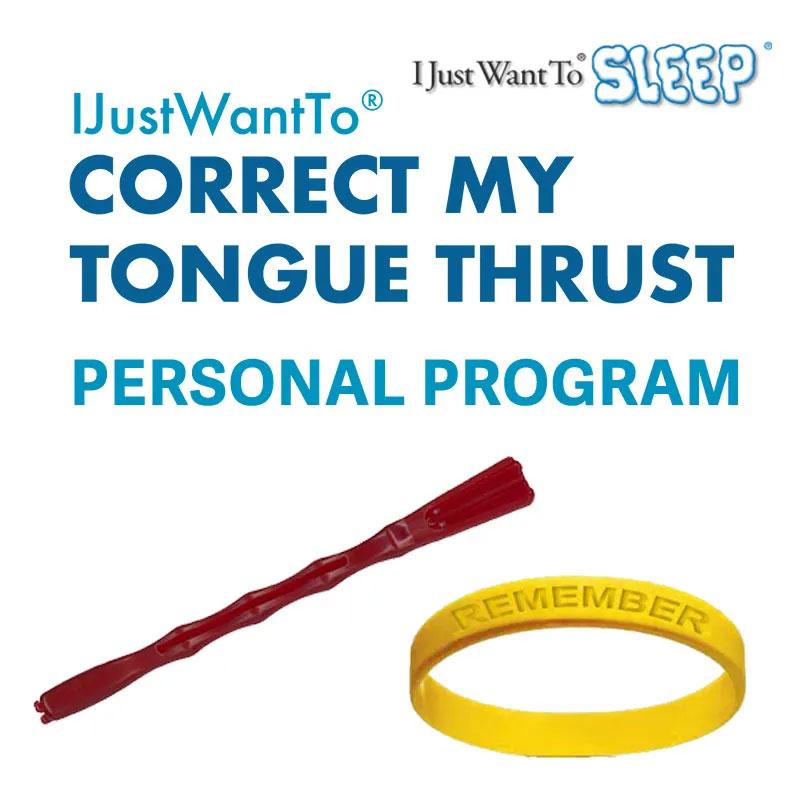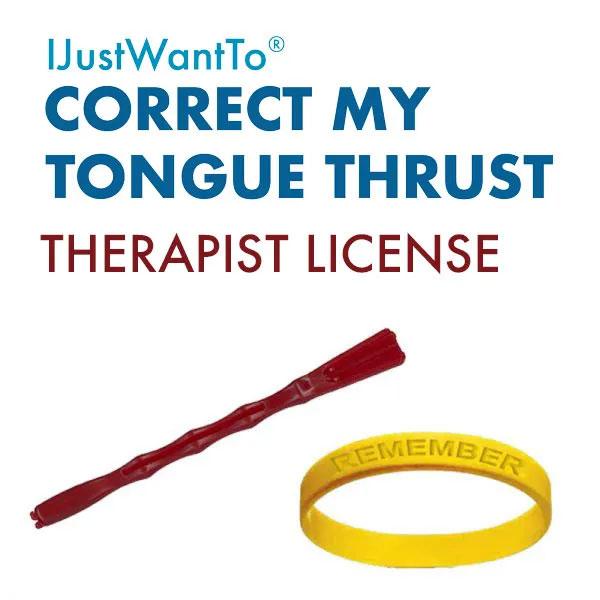Six Signs of Tongue Thrust
Here are six signs that will help you identify whether you or someone you love has tongue thrust:
1) Dental Issues
When swallowing, the tongue can put pressure on the front teeth, pushing them out and generating an anterior overbite. The tongue is one of the strongest muscles in the body, which explains why teeth can continue to protrude even when braces are worn.
In the future, this could lead to costly dental procedures and adjustments, especially for children. If tongue thrust is the cause of dental issues, you might find that the need for braces returns again.
2) Speech Problems
When your tongue is too far forward, it gets "in the way" while you're talking, resulting in a lisp.
“A person with a tongue thrust may mispronounce the “s” and “z” sounds because their tongue is used to being near the front of their mouth, and when they produce it, it sounds like a “th” so “sun” sounds like “thun.” - Tongue Thrust in Children.
3) Snoring
You might just assume snoring is something you will do for the rest of your life. However, it can actually be caused by tongue thrust. When your tongue rests improperly in your mouth, it can make it difficult to breathe at night, leading to snoring.
If you snore at night, it can keep you and your family awake, leading to fatigue during the day.
4) Sleep Apnea
“Sleep apnea is a condition characterized by pauses in breathing while sleeping. When people with sleep apnea sleep, they have many lengthy breath pauses.” - What Is Sleep Apnea?
Ten percent of all Americans suffer from sleep apnea. While there are many causes of sleep apnea, tongue thrust can lead to mouth breathing, which can, in turn, lead to sleep apnea.
5) Mouth Breathing
When your tongue rests improperly in your mouth, it can lead to mouth breathing. If you or a loved one breathes primarily through their mouth, it can lead to a domino-effect of other issues, including:
- Snoring and sleep apnea
- Fatigue due to sleeping improperly
- Lack of focus and irritability
- Difficulty performing daily tasks
- Other issues
6) Grinding Teeth
Teeth grinding happens when your teeth are not correctly aligned. If you grind your teeth, it can lead to jaw discomfort, headaches, and dental problems.
If you or a loved one is exhibiting signs of tongue thrust, there is something you can do about it.
What Can You Do About Tongue Thrust?
Some of the causes of a tongue thrust include:
- Thumb-sucking and/or nail-biting
- Mouth breathing
- Premature loss of "baby" teeth
- Lack of muscle coordination
- Hereditary factors
- Enlarged tonsils & adenoids
We've created a program that can assist in correct tongue thrust by retraining the tongue to rest appropriately in the mouth through exercises. IJustWantTo® Correct My Tongue Thrust is a seven-week program that walks you through tongue exercises that are explained in both textual and video form.
What’s Included in The Tongue Thrust Correction Program:
- You'll get seven weekly sessions with three to five different tongue exercises to help you learn to swallow in a new way. This NEW swallowing technique will become a new habit.
- Online tutorial videos that demonstrate how to complete the exercises. The simple workouts are well-explained and do not cause any discomfort. Each week contains two videos: instructions and a "perform it with the therapist" version.
- You will receive one Patented Tongue StickTM and a "Reminder" wristband to assist you in practicing the exercises.
- The author's personal e-mail and chat access.
If you are ready to correct tongue thrust, start our program today!



